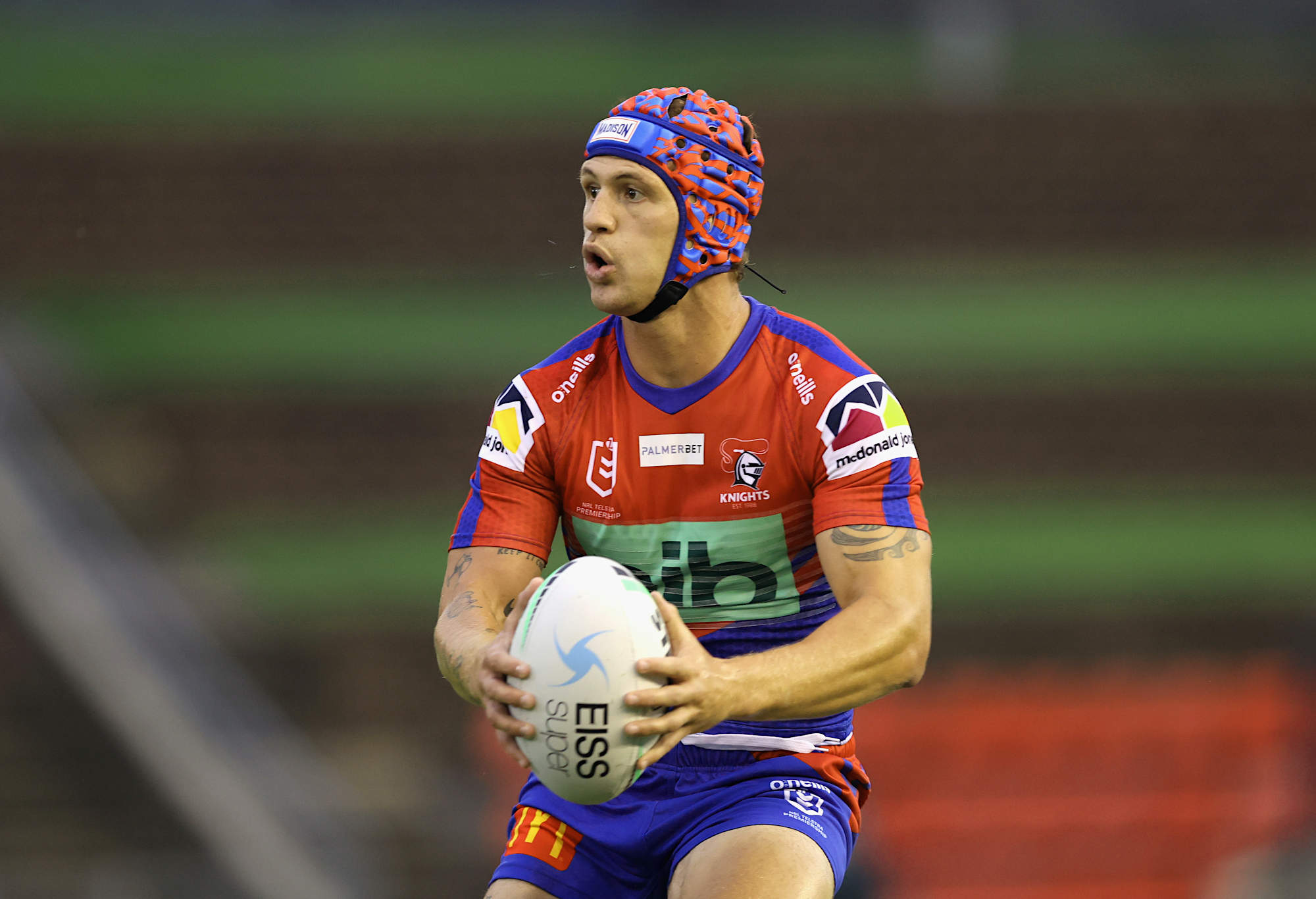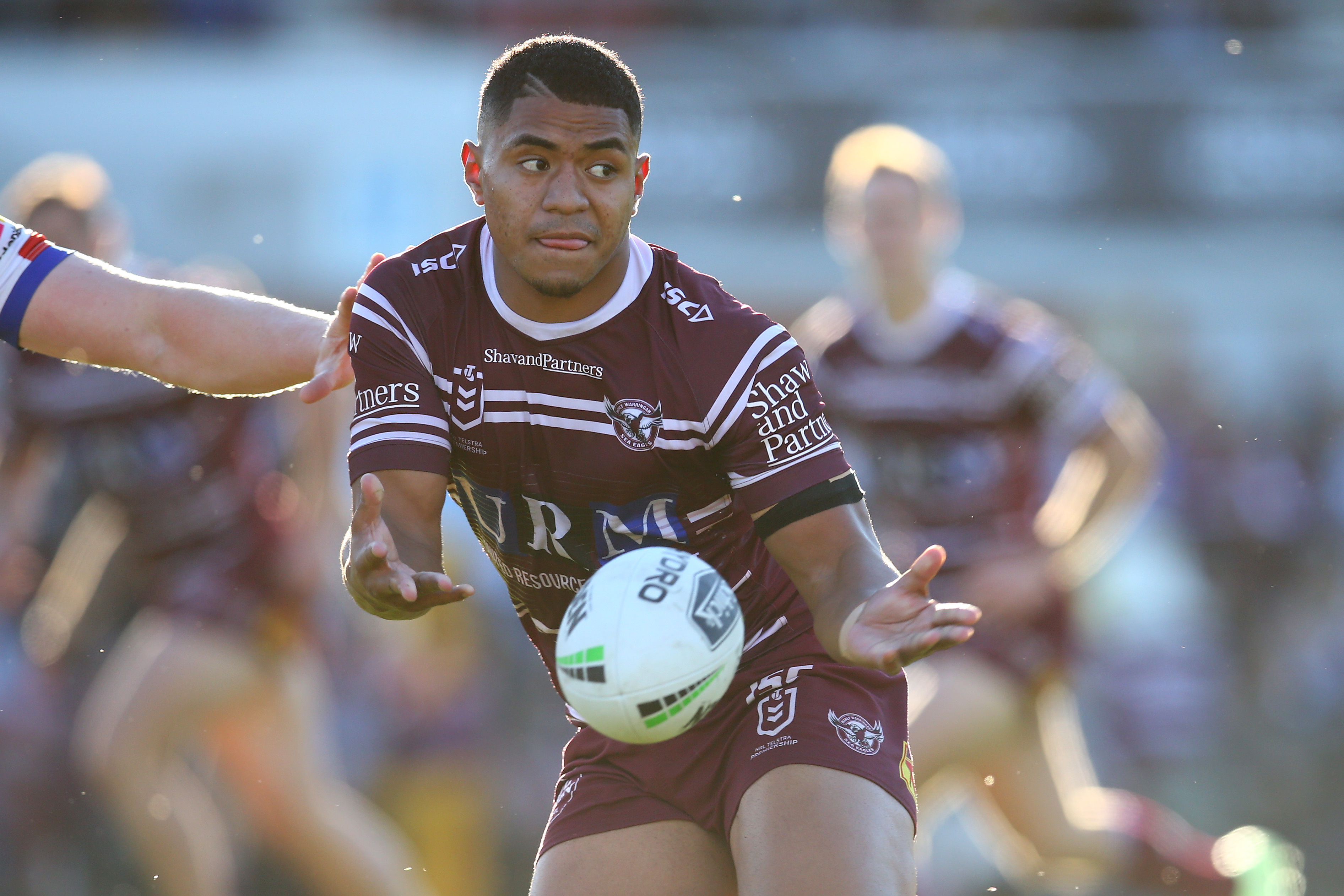
Ricky Stuart displayed a complete lack of class in a tasteless and vicious public attack on young Panther Jaeman Salmon, Manase Fainu was found guilty of a violent church stabbing that occurred in 2019 and former NSW halfback Brett Finch has been found guilty of sharing child abuse material online and will be sentenced later in the year.
In recent days, Corey Norman has disgraced himself by sticking his fingers up the backside of a tackled opponent while playing for Toulouse and despite the Newcastle Knights’ investigation into two of their players being escorted from a pub toilet being unlikely to shed light on what actually occurred, anyone with even half a brain would find it hard to buy the ridiculous tale of Kurt Mann helping out Kalyn Ponga in the stall, after the club’s captain was supposedly feeling a little ill after a few too many drinks.
He must be a little short of a quid Ponga, as I noted he made sure to hold onto his beverage on the trip to the cubicle to ‘relieve’ himself.

(Photo by Ashley Feder/Getty Images)
While that list of incidents only adds more weight to the view that rugby league has not only an image problem but a cultural one, it also only covers the most recent past, with an extensive list of historically tasteless and problematic moments likely to require thousands of column inches if compiled.
I must admit to feeling a little uneasy watching Matthew Lodge tearing into defences and helping the Roosters re-stake their claim on a top-eight position, with images of his violent actions in New York in 2015 still harrowing to watch.
In the same way, it is difficult to support former Bulldogs forward Adam Elliott, with the Canberra back-rower having now compiled a short rap sheet of stupidity across the last few seasons.
Of course, there are hundreds more examples that could be drawn to form a fairly convincing argument that many professional rugby league players appear to not quite grasp to notions of appropriate public behaviour, societal expectations and in more extreme cases, the law itself.

Manase Fainu (Photo by Jason McCawley/Getty Images)
Many will argue that the behaviour is simply a microcosm of broader society and that the incidents are merely reflective of what goes on in all our homes, communities and social settings.
Yet the hard truth is that as my circle of friends, associates and colleagues rounds out somewhere in the vicinity of 500, around the same number of players registered in NRL squads across the 16 teams, they do not seem to be appearing in court at anywhere near the same rate.
There are of course, many kind, mature, thoughtful and brilliant young men in rugby league; something often used to defend the behaviour of a decent number of Neanderthals who do nothing more than give the game a bad name.
Yet perhaps, that is a fundamental flaw in thinking, with the general public somewhat conditioned to expect the poor behaviour and errors of judgement that too often go unpunished or are dealt with in the most wishy washy and secretive manner.
Sadly, some players appear to have feasted on that quiet acceptance and the apparent dismissal of the need for serious repercussions to follow their actions. Such a situation allows players to become laws unto themselves and was never so perfectly enunciated than in the time of COVID-19 restrictions during 2021, when St George Illawarra’s Paul Vaughan hosted a barbeque that saw his contract shredded and a dozen players fined and suspended.
Nathan Cleary displayed similar arrogance and elitism when he appeared with the now infamous Tik Tok dancers in early 2020 and both situations reflect some NRL players being seemingly of the belief that the rules or expectations followed by most, do not apply to them in the same way.
Frankly, it makes me sick.
Attempting to explain the awkward circumstances in which players have found themselves to my daughters has been difficult, particularly some of the more serious cases involving women and alleged violence against them.
As a competition, the NRL has an image problem, yet the fact that players like Vaughan and Elliott just pop up at new clubs a few months after their stupidity sums up just how little consequence there appears to be for actions.
Those more serious cases where incarceration or extended legal proceeding result are different, yet also reflect an entitlement felt by some young players who appear to lack the grounding and intelligence to handle public adoration and attention.

Paul Vaughan. (Photo by Jason McCawley/Getty Images)
For most of us, rugby league is in our blood. I first played at five, never hit the heights yet went on to coach and remain involved with football today.
Now, the frequent off-field drama sees me embarrassed for and ashamed of the game and loving it a little less.
Yes, there has always been poorly behaved rugby league players in Australia and broader society does indeed grapple with the same issues and challenges as the players themselves. However, it is hard not to admit that distasteful rugby league stories occur far too frequently and that the punishments and repercussions for those infringing, often appear comical in their weakness.
For too long people have cared little about the image, claiming the game is resilient and will always rebound and thrive. Maybe so, yet I would rather see the powers at be value decency and respect by addressing what increasingly becomes a concerning trend.

Leave a Reply